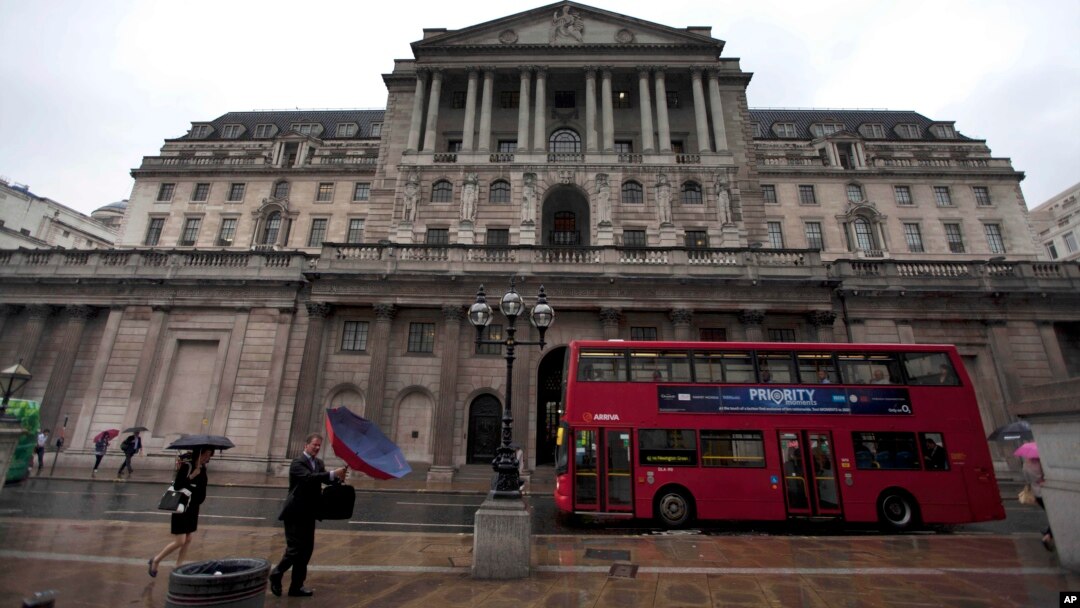The International Monetary Fund (IMF) has cut its two-year global economic growth forecast due to uncertainty surrounding Britain's exit from the European Union.
The IMF said Tuesday it now expects the world's Gross Domestic Product (GDP), the total value of goods and services produced annually by 189 member countries, to grow 3.1 percent in 2016 and 3.4 percent in 2017. Both numbers are 0.1 percent lower than April estimates.
Britain's vote to leave the EU has created a "sizeable increase in uncertainty" that may adversely impact investment and consumer confidence, according to the IMF.
Brexit is expected to have the greatest impact in Britain, where the IMF reduced its 2016 GDP forecast to 1.7 percent, down 0.2 percent from its April projections. Britain's 2017 forecast was cut more sharply, 0.9 percent, to 1.3 percent.

FILE - British pounds and Euro banknotes are pictured in a bank at the main train station in Munich, Germany, June 24, 2016 after Britain voted to leave the European Union in the EU BREXIT referendum.
The IMF's projections are based on relatively mild assumptions about Brexit, including limited political fallout and no further major financial market disruptions.
The IMF also prepared a "severe" projection which anticipates a messy British exit from the EU in which London loses much of its financial services sector to continental Europe. That scenario predicts Britain would fall into recession and global economic growth would dip to 2.8 percent in 2016 and 2017.
A middle "downside" projection shows global growth at 2.9 percent in 2016 and 3.1 percent in 2017.
IMF Chief Economist Maury Obstfeld said rebounds in global financial markets after the initial shock of Brexit helped persuade the IMF to choose the most benign of the three scenarios.


